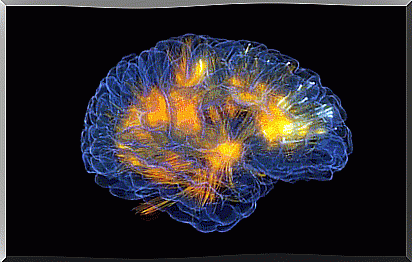Keeping A Journal: Strategy For Healthy Aging
Reading and journaling is not just a way to pass time, to learn, to enjoy. It also involves looking for moments of our own to express, free ourselves and, in turn, appease everyday stress.
We know this is not new. We all know the benefits of reading and finding these moments of intimacy to do so. It is a custom that we also try to transmit to the little ones.
However, we may not have stopped to think about something very specific. Reading and practicing therapeutic writing helps us to have a more agile brain and with greater cognitive reserve.
In this way, we face aging and cognitive degeneration, which can bring possible complications such as dementia. It does not at all mean that we will avoid suffering from a neurodegenerative disease in the future. What will happen is that it will take longer to appear and the impact will not be as severe.
In addition, the pleasure of keeping a daily journal contains more than a private channel of expression. It is a world of possibilities that our cognitive processes are going to notice. So if you are not yet combining these two healthy exercises, it is time to start. We explain why.
Reading and journaling is good for your brain

We all dream of living many years. However, reaching 80 or 90 years is not much use if we do not have quality of life. Because advancing decade by decade experiencing deficits hurts.
Chronic pain or cardiovascular diseases that appear with age are undoubtedly added the saddest: losing memory. Getting the impact of the passage of time to be benevolent and even satisfactory often depends on our current lifestyle.
Activities such as reading, writing or even playing cards or other games with friends allow us to maintain a more agile brain. This conclusion was reached in a study conducted in 2012 at the Rush University Medical Center in Chicago (United States).
The director of this work, Dr. Konstantinos Arfanakis, an expert in dementia and memory problems, supports the relationship between reading and writing with the preservation of a more complete brain. Let’s see more data below.
The white matter of the brain

The white matter is a whitish tissue that is part of the central nervous system. It is between the brain and the spinal cord and is made up of a delicate network of axons.
These axons are the extensions of neurons and have a very specific purpose: to guarantee an optimal circulation of information in the nervous system.
- Diseases such as Alzheimer’s or multiple sclerosis tend to make this difficult. What’s more, the passage of time itself breaks this perfect communication that we have at 20 or 30 years of age.
- Now, a habit as enriching as reading and writing generates a prodigious activity in the white area of the brain. It strengthens it.
- What neurologists call “anisotropy” occurs. It is a property that, at the brain level, enhances connectivity, elasticity and the improvement of information.
- These types of activities not only generate new neural connections. In addition, we must add the emotional component: the mental relaxation that a deep reading produces or the catharsis of writing in a journal our worries also generates fantastic metabolic changes in the brain. The hippocampus gains in connections, endorphins increase.
Keeping a personal diary takes care of our health and our emotions

According to various studies on mental health, such as the one published in the journal BJPsych , spending a few minutes every day writing one’s thoughts and emotions helps us to also maintain a younger brain.
We are talking about expressive writing, about that private channel where you can organize ideas, “dump” emotions, fears, projects or confidences. It is a therapeutic technique that many people carry out for years.
- If we turn this exercise into something everyday throughout our lives, our cognitive processes will notice it. It will increase our capacity for analysis, emotional management, and stress control.
- All of them are, without a doubt, positive dimensions to safeguard the passage of time in our brain. Reading and writing complement each other.
- If we think about it, every mind addicted to reading also enjoys writing from time to time. When we read we understand that “expressive need” that moves a person to write.
- We cannot forget that the brain that is not used atrophies. The brain that only stores worries and obsessive thoughts becomes slow. Loses ability to react.
It is in ourselves to avoid it: read a book, get a notebook with white sheets to fill with the beauty of your thoughts. It doesn’t matter if you think it’s nonsense, or that it’s something no one will want to read. The important thing is that you express yourself and exercise your brain.









